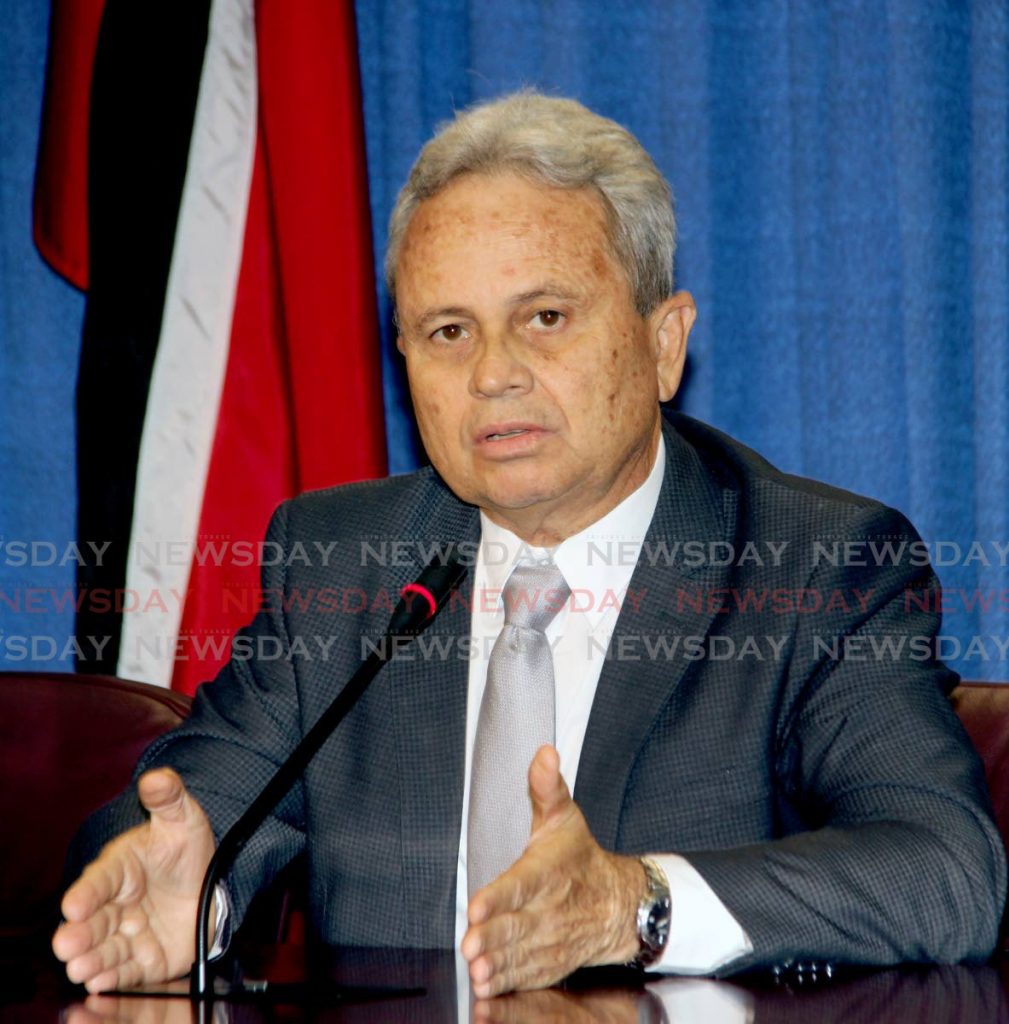Step in the wrong direction

FINANCE Minister Colm Imbert on Friday sought to explain why the Government curtailed the tenure of each and every Central Bank governor from a fixed term of five years to a flexible term between three and five years. He did so as he announced an extension of Dr Alvin Hilaire's term as governor for three more years.
“As we go forward under this uncertain covid environment, the role of monetary policy is going to become far more important,” Mr Imbert said. “We will have to have a stronger connection with the Central Bank and work in tandem with them.” He spoke of the need for “deeper collaboration” and for there to be a situation in which it was “all hands on deck”.
All of this is dramatically at odds with the traditional role of a central bank, in spirit and in law.
The Central Bank is the government’s banker. Its statute stipulates that it is to “act as banker for, and render economic, financial and monetary advice to the Government.” The bank cannot do this if it is beholden to the Executive.
Furthermore, the bank performs or oversees incredibly sensitive functions. For example, it appoints the Inspector of Financial Institutions. The Clico/CL Financial experience – which cost the State billions, resulted in startling revelations of regulatory and political lapses and triggered far-ranging financial and insurance-sector reforms – has shown us why there is need for a degree of independent oversight in our financial system.
The Government’s modification of the governor’s tenure is plainly a step in the wrong direction. Not only does it introduce an element of uncertainty in a situation in which, by the minister’s own admission, things are already tenuous, but it has the effect of making the post-holder theoretically beholden to the executive. That is, after all, what it means if Cabinet can – on its own whim – determine just how long you stay in the job.
Worse, the law clearly envisages a degree of separation between government and the bank. For example, section 9 of the Central Bank Act bans any government employee from serving as the governor – who is also answerable to the Central Bank board, not the minister. Such is the presumption of independence: section 44D explicitly authorises the line minister to issue directives from time to time. And the board must include a finance ministry official presumably to act as a "conduit".
The bank plays a role in reviewing the legislative environment, presumably because it is desirable for an independent agency to provide feedback over how measures passed in Parliament are or are not working. That cannot happen when you have a governor who is unduly close.
Therefore, the minister’s rationale represents a dramatic subversion of the traditional expectation for this sensitive post. Instead of the bank providing advice to a government, it seems it is the desire of the minister for a government to provide advice to the bank.
The question to be asked, therefore, is whether the State has gone too far.
It is true that we are in an economic crisis and having a stormy relationship between the bank and the Executive is far from ideal.
But is the opposite acceptable at the very moment when citizens stand to lose the most?


Comments
"Step in the wrong direction"